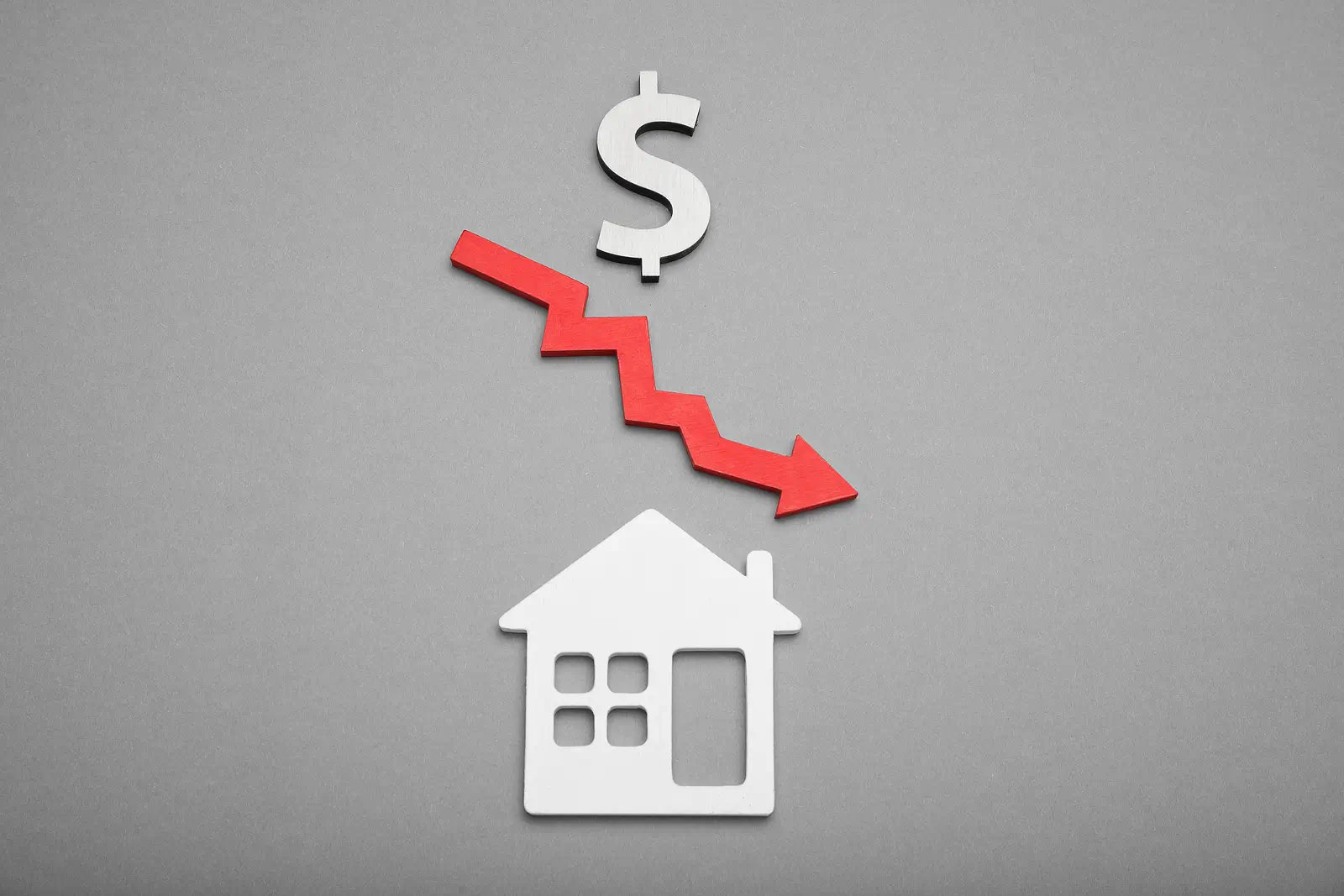Some things most investors owning rental property overlook are rental analysis and that depreciation might be the quietest way to keep more money in your pocket every year.
You’ve probably heard the term tossed around during tax season, but few really know how it works or how much of an impact it can have. It’s not just a line item. It’s a strategy. If used correctly, it could mean thousands in savings.
Knowing the pros and cons of annual depreciation can help you plan smarter, avoid costly mistakes, and walk into tax season prepared, not surprised. And with Goldsboro’s rental market holding strong, it’s the perfect time to sharpen your strategy.
Learn how real estate depreciation affects taxes and how to make it work in your favor, whether you’re a seasoned real estate investor or just getting started.
Real Estate Depreciation 101: A Quick Refresher
Depreciation is the IRS’s way of letting you write off the cost of wear and tear on your rental property. They assume a residential rental property lasts about 27.5 years, and each year, you can deduct a slice of the building’s value on your taxes. Not the land, just the building.
Let’s say your Goldsboro investment's purchase price is $220,000. The land value is worth $40,000, so you’re allowed to depreciate rental property remaining $180,000. That means about $6,545 a year comes off your taxable income. You didn’t pay that out of pocket. It’s just a paper loss that can save you real cash.
Now, it’s important to understand how real estate depreciation affects taxes. With this tax benefit, you can free up cash for other investments.
Pros of Real Estate Depreciation for Goldsboro Property Owners
Real estate depreciation is one of the most powerful tax tools available to Goldsboro rental property owners. It lowers your taxable income each year, helping you keep more of what you earn.
Lower Taxable Income
Depreciation cuts down the income you have to report to the Internal Revenue Service, which means you owe less in taxes. If you’re in the 22% bracket and take $6,500 in depreciation, that’s $1,430 that stays in your pocket instead of going to the government. Understanding how real estate depreciation affects taxes can help you make the most of these savings.
Boosts Cash Flow
Depreciation lets you show less income on paper while your property generates rental income. That means more cash stays with you each year—perfect for reinvesting or simply keeping your finances steady.
Long-Term Wealth Building
Depreciation works alongside other write-offs like mortgage interest and repairs to lower your tax liability year after year. Over time, this helps you grow a stronger, more profitable rental portfolio.
Cons of Real Estate Depreciation You Shouldn’t Ignore
While depreciation offers real tax advantages, it’s not without its drawbacks. Understanding the downsides now can save you from surprises and big tax bills later.
You’ll Have to Pay It Back (Sort Of!)
Here’s the catch. When a real estate investor sells the property, the IRS will “recapture” the depreciation you claimed. That means part of your profits will be taxed at up to 25%. If you depreciated $65,000 over 10 years, that’s $16,250 in taxes when you sell, assuming you don’t do something smart like a 1031 exchange.
It Can Complicate Your Taxes
The math isn’t always easy, and if you mess up, it can lead to headaches or worse, an audit. There are also different methods, like the General Depreciation System and the Alternative Depreciation System, each with its own rules. It’s important to know how real estate depreciation affects taxes so you can plan accordingly and avoid any surprises.
Some Investors Can’t Fully Use It
If you don’t earn enough rental income, or if the IRS considers your rental property a “passive activity,” you may not be able to use all your depreciation benefits right away. Some of those depreciation deductions get carried forward instead.
Real Numbers: What’s It Look Like in Goldsboro?
According to Zillow, the average home value in Goldsboro as of early 2025 is around $186,113. If you’re renting out a home at that price and deducting depreciation, you’re likely writing off about $6,765 per year, assuming a 27.5-year straight-line method depreciation schedule.
Meanwhile, Associated Press News reported that North Carolina has a flat income tax rate of 4.25%. That depreciation deduction? It could be shaving off hundreds or even thousands from your yearly tax bill.
Smart Ways to Maximize Your Depreciation
Depreciation isn’t just a yearly tax deduction. It’s a tool you can use to boost returns and lower your tax liability. The key is knowing how to use it to your advantage from day one.
Break It Down with a Cost Segregation Study
A cost segregation study separates your rental property into parts like flooring, fixtures, and systems that can be depreciated faster than the building itself. That means bigger deductions sooner and more cash flow in the early years.
Use a 1031 Exchange
Selling a rental property? You can delay paying taxes on your profits, including depreciation recapture, by reinvesting the money into another investment property. The key is sticking to the IRS’s timing and rules.
Keep Good Records
Log every expense, upgrade, and repair tied to your rental real estate. Come tax season or sale time, solid records make the numbers work in your favor.
Talk to a Pro
A solid tax advisor or a Goldsboro property management expert can help you sidestep costly mistakes and squeeze the most value out of your rental property. Smart moves start with good advice.
By following these strategies and understanding how real estate depreciation affects taxes, you can make sure you’re getting the most out of your rental property while minimizing your tax obligations.
Turn Depreciation into a Powerful Wealth-Building Tool with Flagship Realty Group!
Property depreciation can be a real win for rental property owners in Goldsboro. It lowers your taxable net income, frees up money for future investments, and provides capital improvements. But it’s not automatic and it’s not simple. Without a strategy, you could lose those benefits or get hit hard with depreciation recapture tax when it’s time to sell.
That’s where expert help comes in. At Flagship Realty Group, we know how to turn smart tax moves into long-term wealth. Our team helps Goldsboro property owners track rental property depreciation, plan ahead, and stay compliant with IRS rules.
Here’s how we help make property ownership smoother and more rewarding:
- Full-service property management tailored for Goldsboro rentals
- Smart income and expense tracking for better tax planning
- Guidance on depreciation, deductions, and recapture tax strategy
- Access to trusted professionals and local market insight
- Hands-off management so you can focus on growth
Ready to put depreciation to work for you? Check out our Goldsboro Property Management page to see how we help landlords build stronger portfolios with less stress and more return!
FAQs
Can I depreciate my rental property if it's currently vacant?
Yes. As long as your property is available for rent and actively listed, you can continue to claim depreciation deductions—even if it's temporarily unoccupied.
Does North Carolina allow bonus depreciation for state taxes?
No. While the federal government permits bonus depreciation, North Carolina does not conform to these provisions. Taxpayers must adjust their state taxable income to add back a portion of the bonus depreciation claimed federally.
What is a property revaluation, and how does it affect my taxes?
In North Carolina, counties are required to revalue properties at least once every eight years to ensure assessments reflect current market values. This process ensures equitable taxation but does not automatically increase your tax bill; any changes depend on the new assessed value and the tax rate set by local officials.
Related Articles
Rental Property Accounting: A Must Have for Landlords in Goldsboro, NC
Essential Tips for First-Time Landlords in Goldsboro, NC
How Property Management Can Help You Protect Your Investment in Goldsboro, NC
Summarize this content with AI:
Chat GPTGrok
Perplexity
Claude.ai



